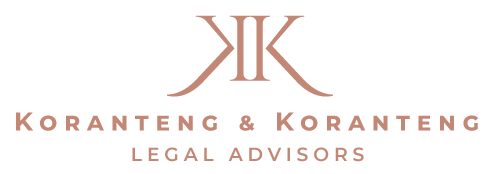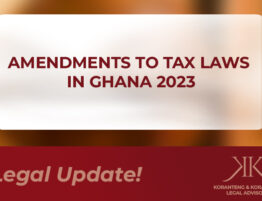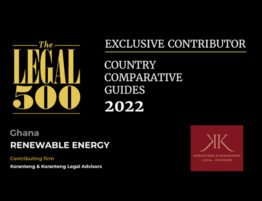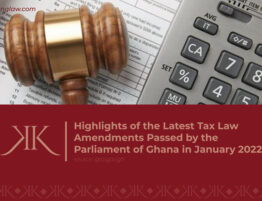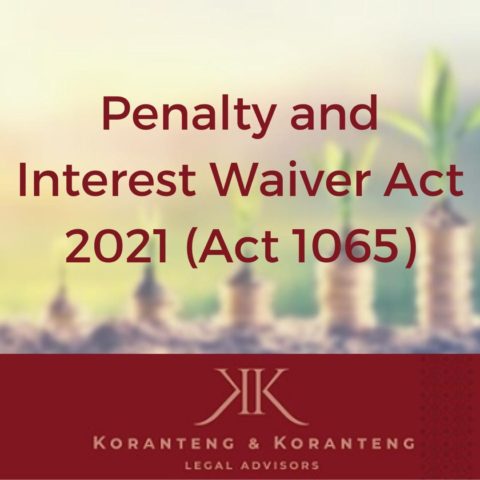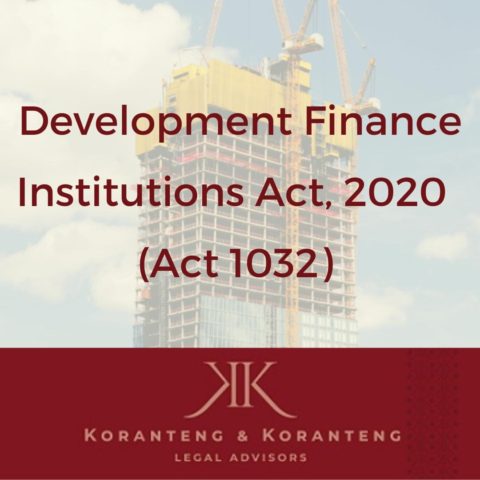
A Summary of Ghana’s Development Finance Institutions Act 2020
The Development Finance Institutions Act, 2020 (Act 1032) (the “Act”) was passed by the Ghanaian Parliament and received Presidential assent on 27thOctober, 2020. The Act establishes a framework for the licensing, regulation, and supervision of Development Finance Institutions (DFI’s) within the country.
Development finance business is defined in the Act to mean the “provision of short, medium and long term funding, guarantees and other credit enhancement structures to key sectors of the economy in a financially sustainable manner.” Any person that intends to engage in this business must be a body corporate registered under Ghanaian law and must obtain a license from the Bank of Ghana (BoG).
Persons intending to obtain a license must send a written application to the Bank of Ghana accompanied by several stated documents and the particulars of the company, proposed directors and key management staff in addition to paying the relevant processing fees. There are four license classes available namely: (Class 1 license) -DFIs which provide for wholesale development finance; (Class 2 license) -DFIs which provide retail development finance; (Class 3 license)- DFIs which provide guarantee development finance; and (Class 4 license) -DFIs which provide a combination of any of the three.
Requirements for Foreign DFI’s under the Act
Notably, the Act does not apply to DFIs governed by a multilateral treaty or under sovereign bilateral agreements such as the World Bank and the African Development Bank.
The Bank of Ghana is assigned the role of regulating and supervising DFIs in the country and is responsible for issuing licenses as well as granting approval to foreign DFIs to set up representative offices in Ghana.
Permissions of Engagement and Product Offerings under the Act
While DFIs are permitted to engage in direct and indirect debt or equity financing, refinancing and loan syndication amongst other related activities, they cannot engage in the acceptance of any type of deposits. DFIs must comply with the liquidity and minimum paid-up capital (i.e., initial funds required to start-up a DFI and the operational start-up costs prescribed by BoG) requirements and accompanying calculations prescribed for their license class by the Bank of Ghana. They are also required to set up a Reserve Fund where a portion of their net profits for the year are transferred, calculated based on the proportion of the amount in the fund to their paid-up capital. Notably, DFIs must invest a minimum of 75% of loanable funds in medium (3-7years) and long term (exceeding 7 years) loans and no more than 25% in short term (less than 3 years) loans. A breach of the above requirements, following a notice by the BoG, would attract a penalty.
Ownership and Control as prescribed by the Act
The DFIs are required to bi-annually furnish the BoG with a report on its organisational structure. Any transfer of shares in the DFI which would affect significant shareholdings must be done with prior approval the BoG. In the same vein, a person cannot sell or transfer the whole or part of the business, undertake a merger or engage in the reconstruction of a DFI without a formal application to and approval from the BoG.
The Act also provides for governance of DFIs, stating that a DFI shall have a Board of Directors, Chief Executive Officer and any other necessary staff. The Board is responsible for the overall corporate governance of the institution and members are to serve for 4 years with the option of re-election for another term. In addition, the Act provides for the composition, qualification, meetings, and performance evaluation of board members. DFIs are also required to have Audit and Risk Committees to oversee audit and risk management functions. Provisions are included to address conflict of interest scenarios and to secure compliance with their disclosure. Notably, the DFI must seek prior written approval from the BoG in the appointment of a CEO, director and any key management personnel.
With regard to restrictions on lending and investment, the Act contains provisions prohibiting an advance or loan against the security of the DFI’s own shares, limiting the DFI’s financial exposure, restricting transactions with an affiliate or insider, restricting lending to staff, and limiting the scope of the DFI’s equity investments.
The Act likewise provides guidelines on accounting standards and disclosures in financial statements for the DFIs. In addition, the BoG may require the submission of information and data it requires relating to the DFI’s affairs and has the power to carry out an examination of its operations.
The Current Situation in Ghana
Ghana has a number of foreign DFIs which are set up under bilateral arrangements, however, there are currently no local development finance institutions registered as such with the Bank of Ghana. Entities like the National Investment Bank and Agricultural Development Bank started out as development banks but have since taken on commercial activities. Similarly, the Export Development and Investment Fund (a statutory corporation that provides grants and loans for the development of agro-processing and exporting) was not registered as a financial institution with BoG. The Ghana Infrastructure Investment Fund, also a statutory corporation, similarly offers funding for infrastructure development projects but is not registered as a financial institution with the BoG.
The World Bank provided funding for the establishment of the Development Bank of Ghana in 2020. This will be the first properly registered DFI under the Act and we expect that their specific focus on development projects will set the pace for other institutions to follow.
Conclusion
The Act is a recognition by the Ghanaian government of the growing structural and demographic changes and a new industrial revolution with its attendant impact on human capital. This requires Ghana and Africa to find innovative mediums of financing and generating capital in order not to be left behind.
Ghana seeks to open up to international DFIs while it mulls the idea of a Government- owned DFI which will help channel private investments into productive sectors, new technologies and help accelerate market efforts to achieve the sustainable development goals.
Written By: Prince Ogunlana, Legal Intern, Koranteng & Koranteng Legal Advisors
